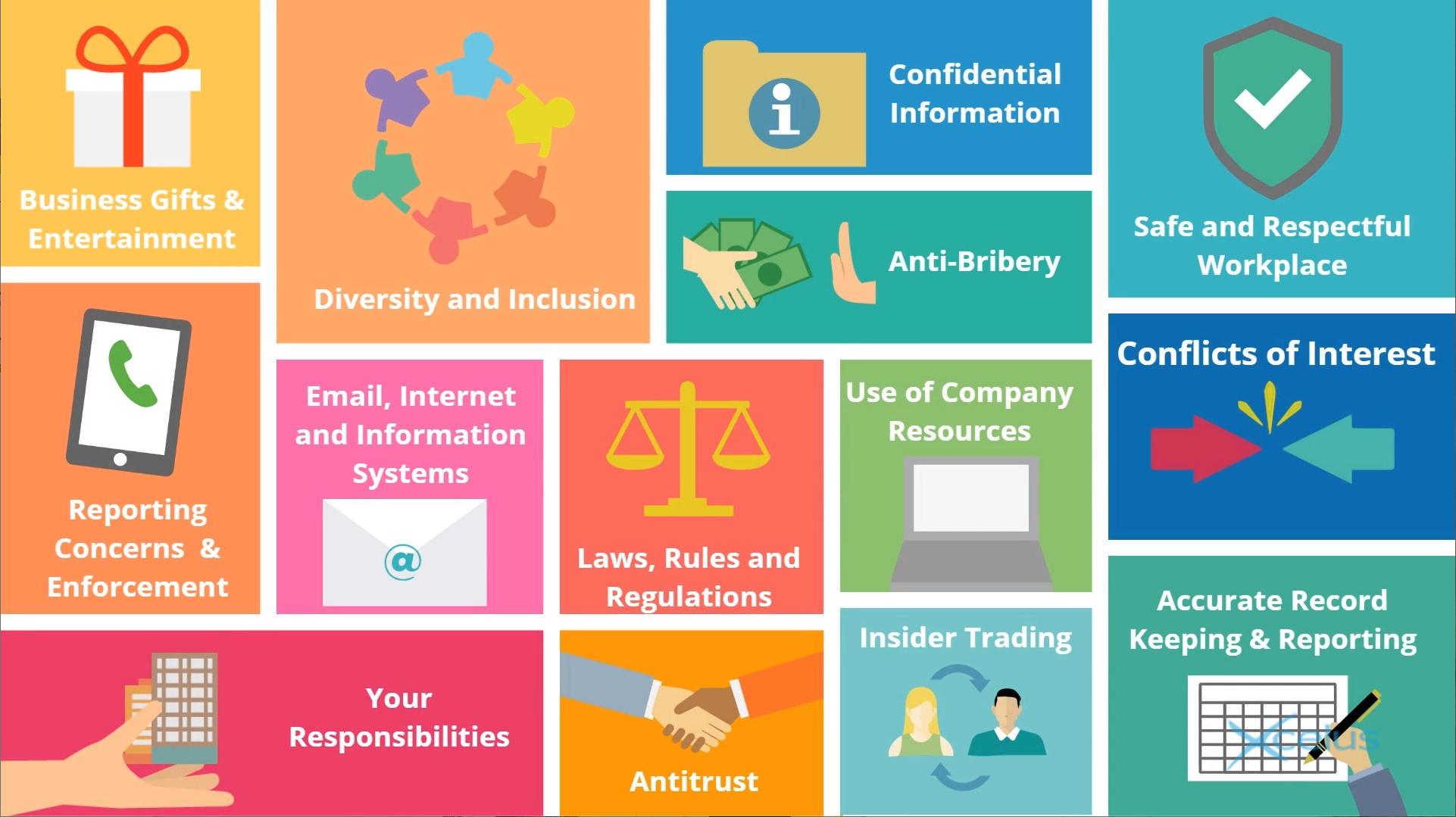What is a Code of Conduct?
A code of conduct is a formal set of guidelines and principles that outlines expected behaviors, ethical standards, and rules of behavior within an organization. It is a comprehensive document that defines the values and expectations for employees, management, and stakeholders, promoting a culture of ethical conduct, integrity, and professionalism.
Key elements typically included in a code of conduct are:
- Ethical Standards: The code of conduct outlines the organization’s core values and principles guiding decision-making and actions.
- Compliance: It specifies compliance with laws, regulations, and industry standards relevant to the organization’s operations.
- Anti-Bribery and Corruption: It establishes a stance against bribery, corruption, and unethical practices, emphasizing the importance of fair and transparent dealings.
- Confidentiality: The code outlines the importance of safeguarding sensitive information and trade secrets.
- Conflicts of Interest: The code addresses how conflicts of interest should be identified, disclosed, and managed to ensure impartial decision-making.
- Consequences of Violations: The code highlights potential disciplinary actions for non-compliance and breaches of the code’s provisions.
- Fair Competition: The code promotes fair competition and discourages anticompetitive behaviors that could harm the market or stakeholders.
- Respect and Diversity: It emphasizes treating all individuals with respect, regardless of their backgrounds, and promotes a diverse and inclusive workplace.
- Reporting Violations: It guides how employees can report code violations, encouraging whistleblowing and assuring protection against retaliation.
- Responsibility of Management: It underscores the role of leaders in upholding and promoting the code of conduct throughout the organization.
A well-designed code of conduct helps establish a solid ethical foundation, contributes to risk management, and builds trust among employees, customers, partners, and the broader community.
Management’s responsibility is regularly reviewing, updating, and effectively communicating the Code of Conduct, ensuring its sustained relevance and influence on fostering an ethical culture within the organization.





